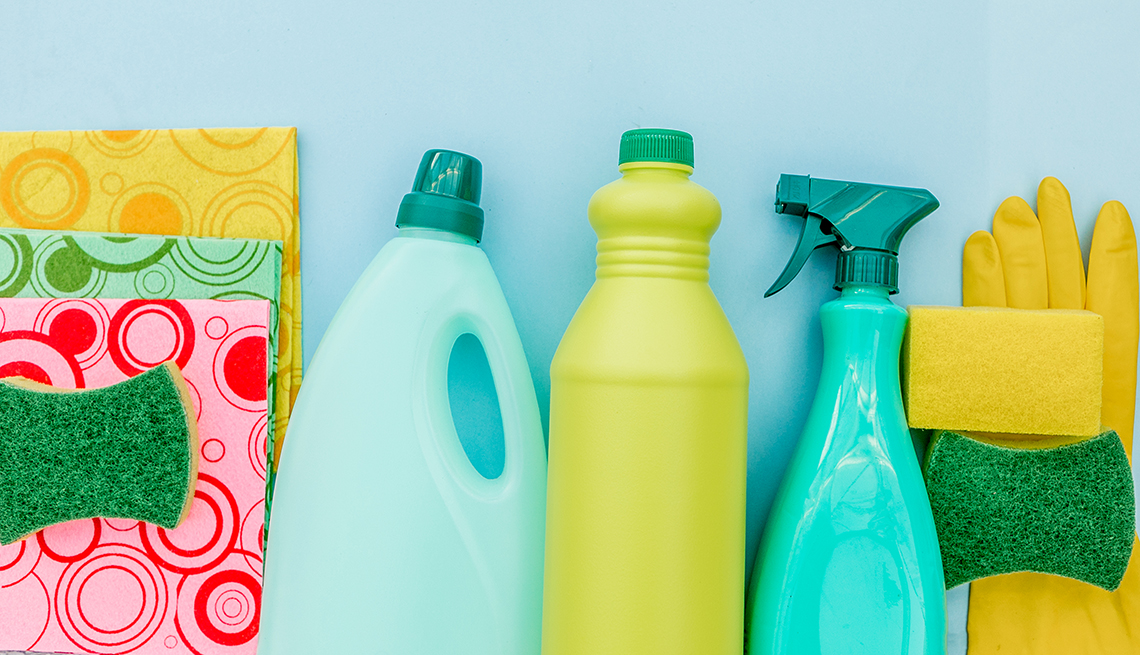AARP Hearing Center
Opening windows and doors and freshening up the inside and outside of my house is a spring ritual I love — so is a shopping spree at the local home center! Loading up on supplies for cleaning, gardening and home projects can cost a fortune. But as a shopping expert, I like the challenge of getting it all done on a dime (well, maybe a bunch of dimes). Here are some of my favorite money-saving strategies.
Cleaning
- Do it yourself. You don't need store-bought liquids, sprays and powders for most housecleaning. Instead, brew your own cleaners from inexpensive, nontoxic ingredients you probably have around the house. For wood furniture, mix 1/2 teaspoon olive oil with 1/4 cup white vinegar. Dab with a cloth and polish, says Lisa Beres, who writes about healthy homes.
- Buy minimally. Pare down your chemical arsenal to just a couple of tried-and-true all-purpose cleaners like Ajax, Comet, Pine-Sol or Clorox Clean-Up. Reserve them for really icky jobs, and use sparingly. “If you give the product 30 seconds to a minute to dissolve dirt, they clean better and you don't need to use as much,” says Pat Slaven, a former tester at Consumer Reports and coauthor of How to Clean Practically Anything.
- Use and reuse. Instead of paper towels, buy microfiber or sponge cloths, such as E-Cloth and Skoy Cloth. Beres likes the Unpaper Towel, a roll of washable cloths that pops over your paper-towel holder. Old towels, T-shirts and clean cloth diapers also will do the trick. And keep newspapers on hand to clean windows.
- Slice your sponge budget. A 2017 study found that kitchen sponges generally are germier than toilets and are able to spread dangerous bacteria. Sanitizing a sponge doesn't kill all germs, so it's best to replace them weekly. That's expensive, but you can cut your sponge costs in half with scissors.





































































